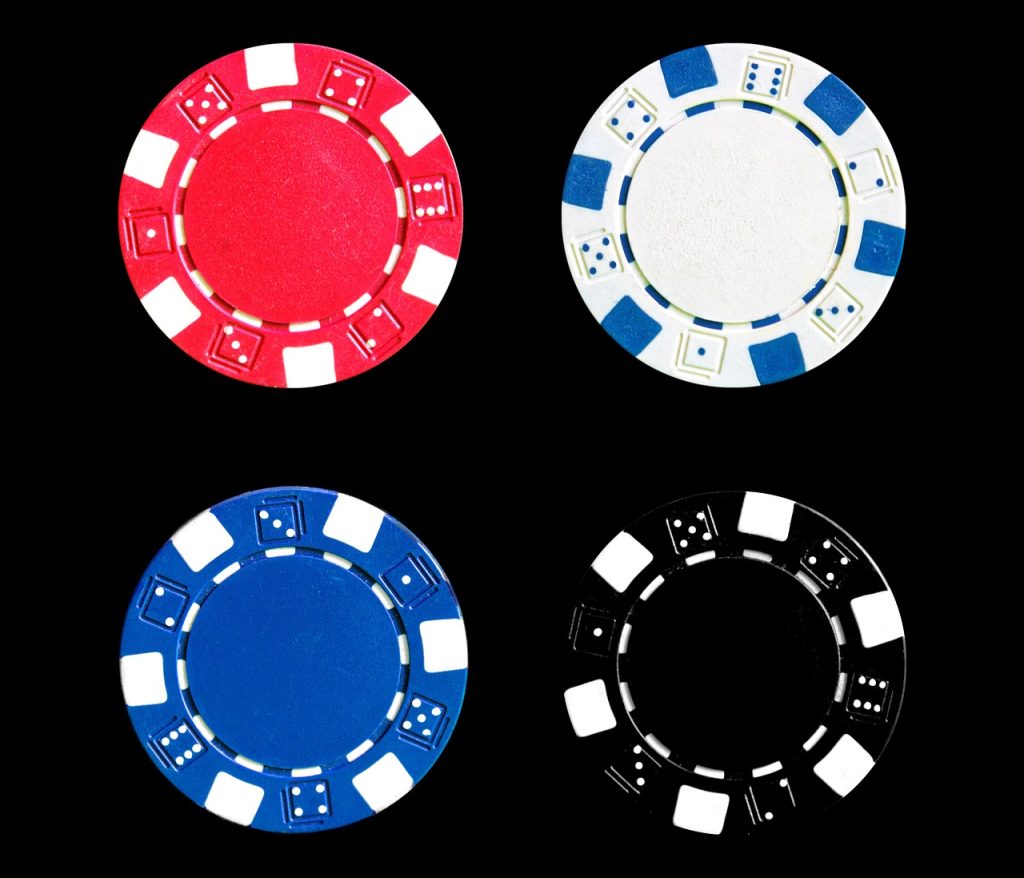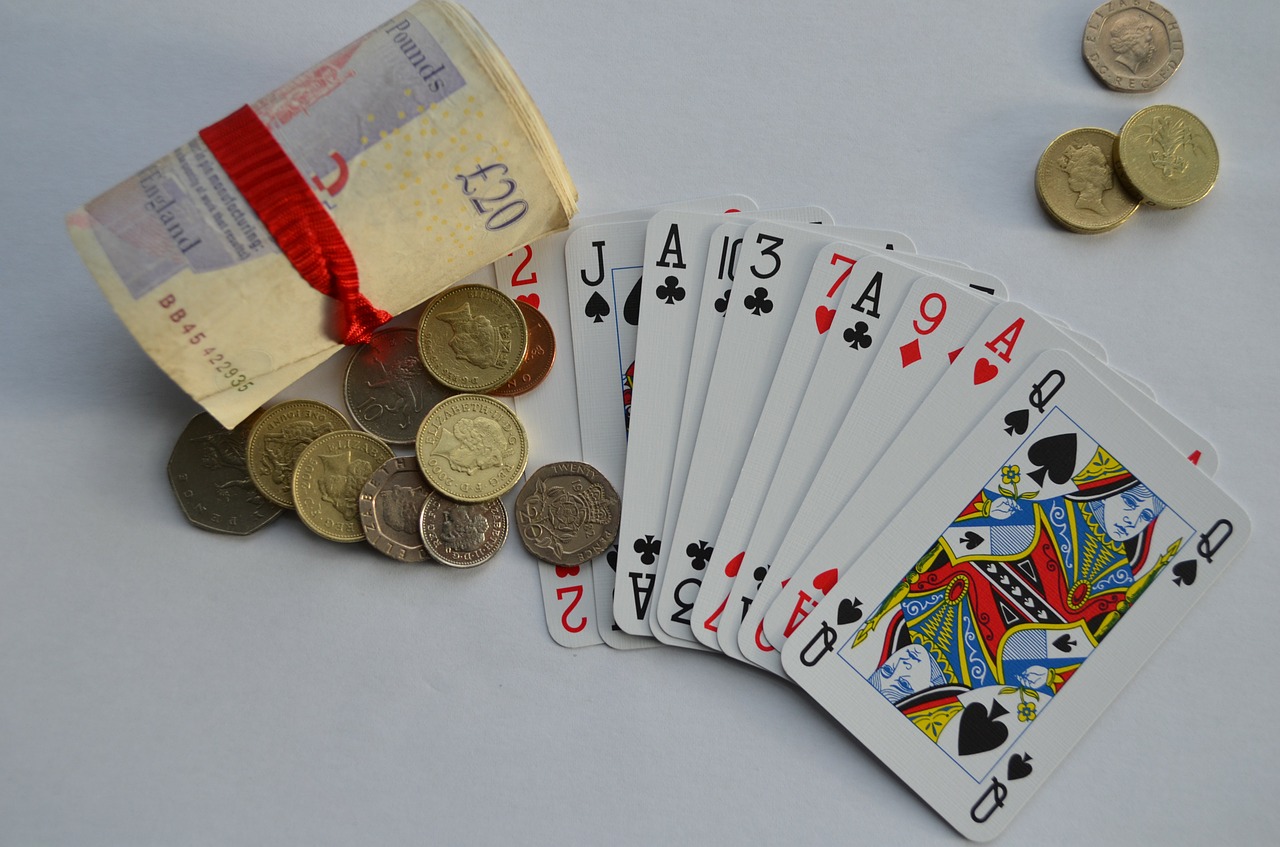1. Introduction: The Importance of Avoiding Poker Mistakes
When it comes to playing poker, avoiding mistakes is just as crucial as making the right moves. Even seasoned players can fall victim to common errors that can cost them dearly at the poker table. Whether it’s mismanaging your bankroll, failing to adapt to opponents’ strategies, or making emotional decisions, these mistakes can undermine your chances of success. In this article, we will explore five common poker mistakes to avoid and provide valuable insights and strategies for improving your game. By understanding and rectifying these errors, you can enhance your gameplay, increase your winnings, and become a more formidable player in the exciting world of poker.
1. Introduction: The Importance of Avoiding Poker Mistakes
Understanding the Impact of Poker Mistakes
Picture this: You’re sitting at a poker table, feeling confident and ready to conquer the world. You’ve studied the game, perfected your poker face, and even wore your lucky socks. But despite all your preparation, you still end up making one crucial mistake that costs you the entire game. Sound familiar?
We’ve all been there. Whether you’re a seasoned poker pro or a casual player, making mistakes is part of the game. However, understanding the impact of these mistakes and taking steps to avoid them can make all the difference between a night of fun and a night of frustration.
In this article, we’ll explore five common poker mistakes and provide some valuable tips to help you steer clear of them. So grab your chips, put on your thinking cap, and let’s dive right in!
2. Lack of Bankroll Management: Playing Beyond Your Means
The Significance of Proper Bankroll Management
Setting Realistic Limits and Sticking to Them
Ah, the thrill of the game! The adrenaline rush as you push all your chips into the center of the table. It can be tempting to go all in and chase that big win, but let’s face it: poker is a marathon, not a sprint.
One of the most common mistakes players make is failing to manage their bankroll properly. Your bankroll is your lifeline in poker, and without it, you’re just a fish swimming in a shark-infested sea.
So, how do you avoid this mistake? It’s simple: set realistic limits and stick to them. Determine how much you’re willing to risk, and never go beyond that. Remember, even the best players in the world face losses. Don’t let a momentary lapse in judgment wipe out your entire bankroll.
3. Ignoring Position and Table Dynamics: Understanding the Context of the Game
The Role of Position in Poker
Reading and Adapting to Table Dynamics
Position, position, position! It’s not just important in real estate; it matters in poker too. Ignoring your position at the table and failing to adapt to the dynamics can be a costly mistake.
Your position determines the order in which you act, and it can greatly influence the strength of your hand. Playing from a late position gives you a significant advantage, as you have more information about your opponents’ actions before making your move.
Similarly, understanding table dynamics is crucial. Is the table tight or loose? Are players aggressive or passive? By observing and adapting to these dynamics, you can make better-informed decisions and avoid falling into traps set by your opponents.
4. Overvaluing Starting Hands: The Fallacy of Holding on to Weak Cards
The Pitfalls of Overplaying Weak Starting Hands
Identifying and Capitalizing on Strong Starting Hands
Picture this: you’re dealt a hand that makes you feel invincible, like you’re holding the winning lottery ticket. But before you get carried away with visions of stacks of chips, stop and reassess.
One of the most common mistakes players make is overvaluing their starting hands. Holding on to weak cards in the hopes of a miracle flop is a recipe for disaster. Sure, we’ve all heard stories of those infrequent moments when the underdog triumphs, but poker is a game of probabilities, not miracles.
Instead, focus on identifying and capitalizing on strong starting hands. Learn the value of different hands and don’t be afraid to fold if the odds aren’t in your favor. Remember, winning poker is about making strategic decisions, not relying on luck.
By avoiding these common poker mistakes, you’ll be well on your way to becoming a more successful player. So, next time you sit down at the poker table, keep these tips in mind, stay focused, and may the cards be ever in your favor!
5. Failing to Adapt: Inflexibility in Adjusting to Opponents’ Strategies
The Importance of Adapting to Different Players
When it comes to poker, one size does not fit all. Each opponent you face has their own unique style and strategies. Failing to adapt and adjust to your opponents’ gameplay is one of the biggest mistakes you can make. Playing the same way against every player might work occasionally, but it’s not a recipe for consistent success.
Recognizing and Countering Opponents’ Tactics
Successful poker players are like chameleons, able to blend into their surroundings and adapt to any situation. It’s important to study your opponents, pick up on their playing patterns, and adjust your strategy accordingly. If someone is playing aggressively, you might want to tighten up and play more conservatively. If another player is overly cautious, you can take advantage of their passivity. Recognizing your opponents’ tactics and adjusting your own strategy is key to staying one step ahead at the poker table.
6. Emotional Decision-Making: Controlling Tilt and Avoiding Impulsive Moves
The Dangers of Emotional Decision-Making
Poker can be an emotional rollercoaster. The highs of winning a big pot can quickly turn into the lows of a devastating loss. It’s easy to let your emotions get the better of you and make impulsive decisions. Acting out of anger or frustration rarely leads to good outcomes in poker.
Methods to Control Tilt and Maintain Rationality
To avoid the pitfalls of emotional decision-making, it’s important to learn how to control tilt and maintain a rational mindset. Take breaks when you feel yourself getting angry or upset. Remind yourself that poker is a game of skill and variance, and that you can’t control the cards. Focus on making logical decisions based on the information available to you, rather than letting your emotions dictate your actions. By keeping a level head, you can make better decisions and avoid costly mistakes.
7. Neglecting Pot Odds and Expected Value: Making Sound Mathematical Decisions
The Basics of Pot Odds and Expected Value
In poker, making sound mathematical decisions is crucial for long-term success. Understanding pot odds and expected value (EV) is essential. Pot odds refer to the ratio of the current size of the pot to the cost of a contemplated call. EV, on the other hand, is a measure of the average amount of money you can expect to win or lose on a particular decision in the long run.
Utilizing Pot Odds and Expected Value in Decision-Making
By considering pot odds and expected value, you can make more informed decisions at the poker table. If the pot odds are higher than the odds of completing your drawing hand, it may be profitable to make the call. Likewise, if the expected value of a particular move is positive, it’s likely a good decision in the long run. Neglecting these mathematical aspects of the game can lead to costly errors and missed opportunities.
8. Conclusion: Improving Your Poker Game Through Error-Free Play
The Benefits of Avoiding Common Poker Mistakes
Avoiding common poker mistakes is key to improving your game and increasing your chances of success. By adapting to your opponents, controlling tilt, and making sound mathematical decisions, you can minimize errors and maximize your profitability. Learning from your mistakes and striving for error-free play is the path to long-term improvement.
Developing a Solid Foundation for Long-Term Success
Just like building a house, a successful poker game requires a solid foundation. By avoiding common mistakes, you can establish this foundation and set yourself up for long-term success. As with any skill, it takes practice, patience, and a willingness to learn from your errors. So, remember to adapt, control tilt, consider pot odds and expected value, and strive for error-free play. With time and dedication, you’ll become a force to be reckoned with at the poker table.
8. Conclusion: Improving Your Poker Game Through Error-Free Play
Avoiding common poker mistakes is a fundamental step towards becoming a successful player. By implementing proper bankroll management, understanding the dynamics of position and table, valuing starting hands appropriately, adapting to opponents, making rational decisions, and considering pot odds and expected value, you can significantly enhance your poker skills. Remember, mistakes can be costly, but they also provide valuable learning opportunities. With practice and a commitment to error-free play, you can elevate your game, increase your chances of winning, and enjoy the thrill and satisfaction of playing poker at your best.
FAQ
1. Why is avoiding poker mistakes important?
Avoiding poker mistakes is crucial because even a single error can have a significant impact on your overall performance and potential winnings. By eliminating common mistakes, you can maintain better control over your bankroll, make more informed decisions, and increase your chances of success at the poker table.
2. Can experienced players also make common poker mistakes?
Absolutely. No matter how experienced or skilled a player is, it is still possible to make common poker mistakes. Poker is a complex game that requires continuous learning and adaptation. Even seasoned players can fall into patterns of behavior or make impulsive decisions that can negatively affect their gameplay. Recognizing and rectifying these mistakes is essential for continued improvement.
3. How can I overcome emotional decision-making in poker?
Emotional decision-making, often referred to as going on tilt, is a common pitfall in poker. To overcome it, it’s important to practice emotional control and develop strategies to manage tilt. Techniques such as taking breaks, focusing on logical reasoning rather than emotions, and maintaining a calm mindset can help you make more rational decisions and avoid impulsive moves.
4. How can I improve my ability to adapt to opponents’ strategies?
To improve your adaptability, it’s essential to closely observe your opponents and their playing styles. Look for patterns in their betting, observe their reactions to certain situations, and adjust your own strategy accordingly. Continuously analyzing and adjusting your playstyle based on your opponents’ actions can greatly enhance your ability to adapt and improve your overall game.







Facebook Comments